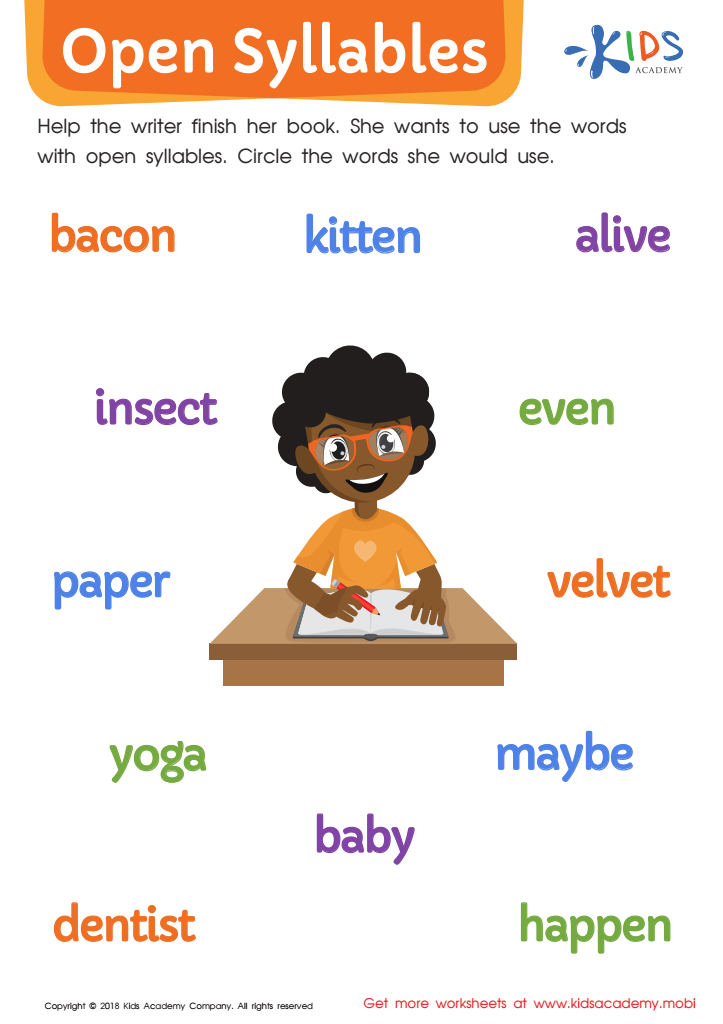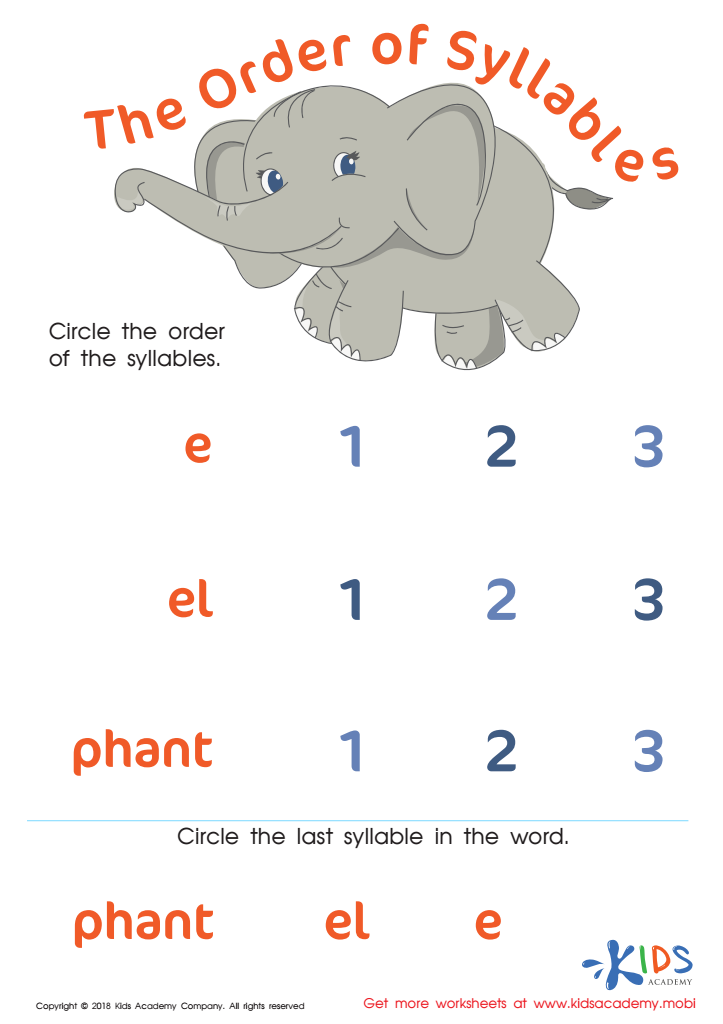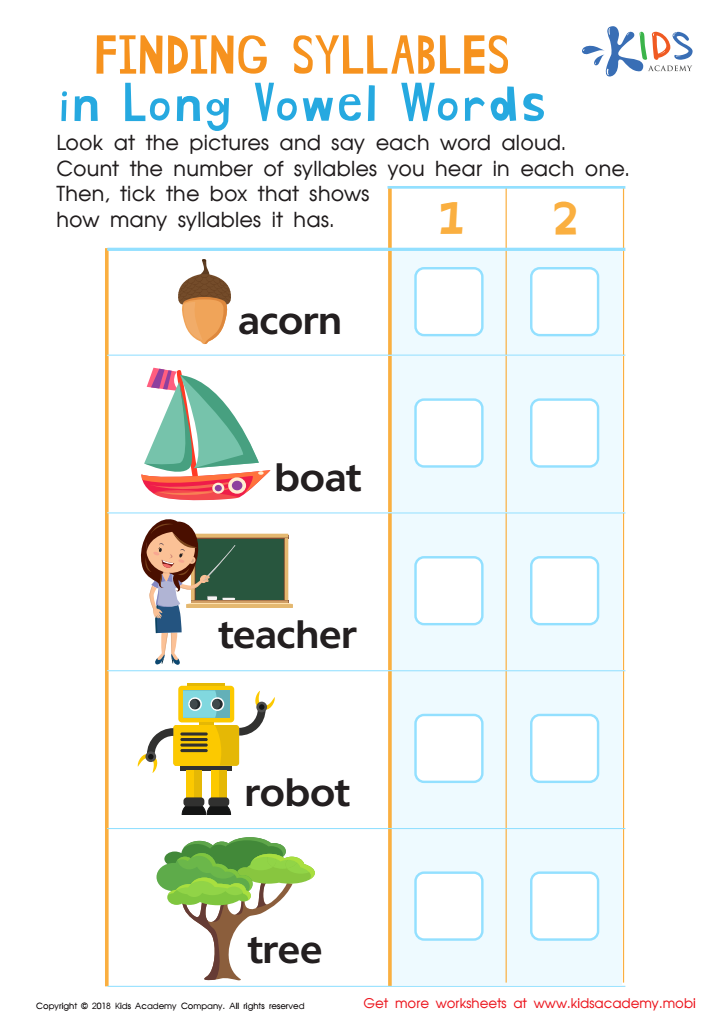Understanding syllables Normal Alphabet Worksheets for Ages 4-8
3 filtered results
-
From - To
"Understanding Syllables Normal Alphabet Worksheets for Ages 4-8" offer engaging and educational resources designed to enhance young learners' language skills. Through colorful and interactive worksheets, children get to discover the basics of syllables and refine their alphabet knowledge. Tailored specifically for ages 4-8, these printables make learning enjoyable, reinforcing phonemic awareness and fostering early literacy skills. Parents and educators can use these worksheets to support classroom activities or home practice, ensuring kids develop a strong foundation in reading and writing. Start a fun-filled educational journey today with our expertly crafted syllable worksheets!


Open Syllables Worksheet


The Order of Syllables Worksheet


Finding Syllables in Long Vowel Words Worksheet
Understanding syllables and the normal alphabet are foundational skills for young children aged 4-8, pivotal in their literacy development. Syllables are the building blocks of language, providing a natural rhythm to words that can aid in pronunciation and reading fluency. When children grasp how to segment words into syllables, they can decode new words more easily, enhancing their reading and speaking capabilities.
The alphabet is equally important, serving as the cornerstone of a child’s ability to read and write. Familiarity with letters and their corresponding sounds allows children to understand how words are constructed and to form their own sentences. Knowing the alphabetical order also simplifies tasks such as looking up information in dictionaries, thereby fostering independent learning.
For parents and teachers, investing time in helping children understand syllables and the alphabet can set the stage for future academic success. Proficient early readers generally exhibit better academic performance overall. Moreover, literacy is not just an educational skill but a critical tool for lifelong learning and communication. Engaging young learners with fun and interactive alphabet activities and syllable games can make the learning process enjoyable and effective, building their confidence and setting a positive attitude towards education from an early age.
 Assign to My Students
Assign to My Students
















